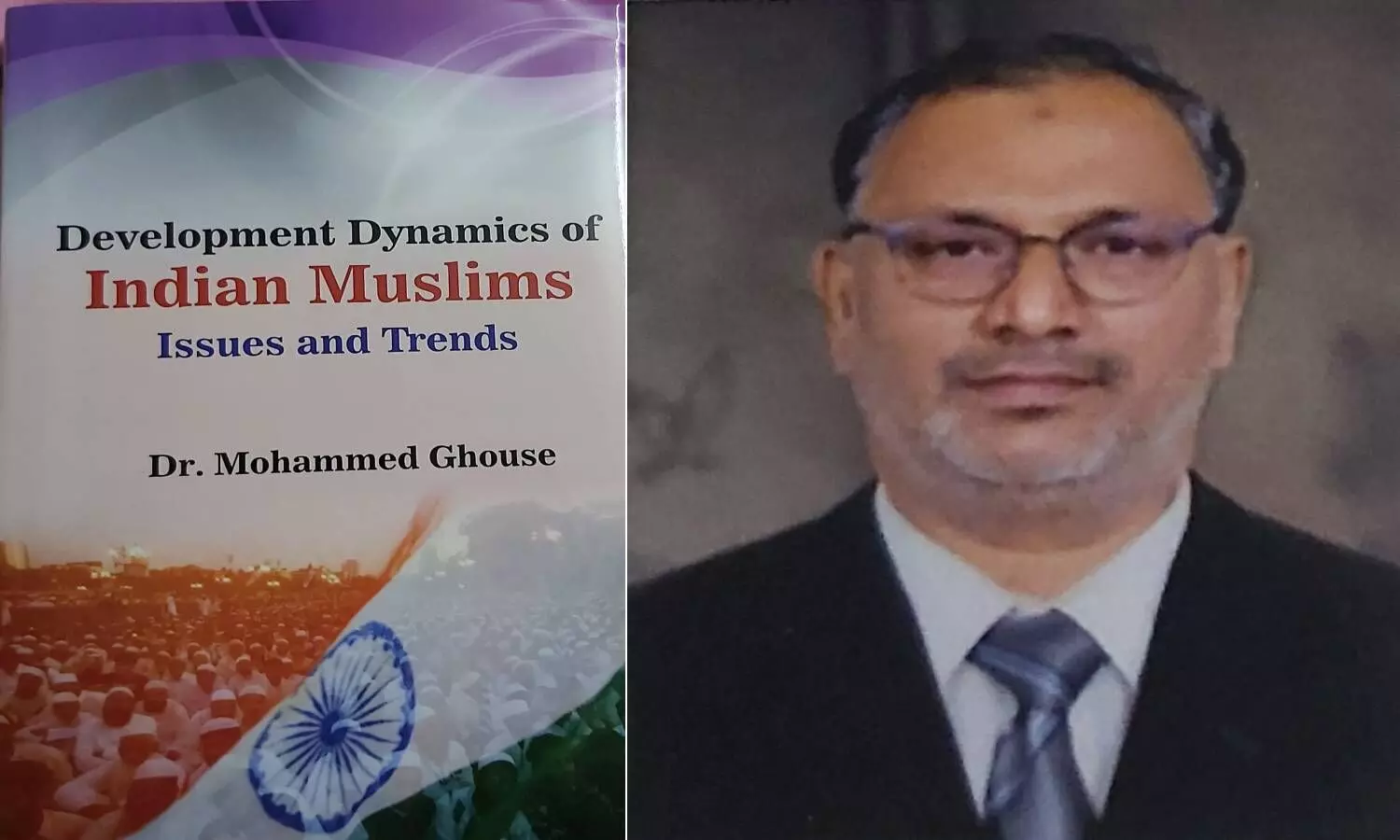Book Review: Dynamics of Indian Muslims-Issues and Trends
The author, Dr. Mohammad Ghouse, who is also the Director, Telangana State Urdu Academy, thinks the growing theocratic trend doesn't augur well for the secular contexture of the country.
By J.S. Ifthekhar
The 2024 general elections will be crucial for India. It will decide the million-dollar question of whether the country will remain a secular state or turn theocratic. With the Hindutva philosophy catching the imagination of North Indian states, the ruling BJP has won the battle halfway to establish Hindu Rashtra. The cow belt is already caught in the saffron wave while the southern States are opposing the Hindutva philosophy. The nation's secular traditions have gone for a toss. Dissenting voices are being silenced one by one while independent institutions are crumbling under pressure.
These apprehensions are voiced in a newly released book - Dynamics of Indian Muslims - Issues and Trends. The author, Dr. Mohammad Ghouse, who is also the Director, Telangana State Urdu Academy, thinks the growing theocratic trend doesn't augur well for the secular contexture of the country. Most of the citizens are alive to these Constitutional challenges. And this makes the next election both interesting and decisive.
With empirical evidence, Dr. Ghouse discusses at length the adverse impact of religious politics in a pluralistic country on Muslims and marginalized communities. He raises several queries with regard to the deprivation and discrimination being faced by the country's largest minority and questions the government's belief in the secular state. A professor of political science, Dr. Ghouse throws fresh light on the status of Indian Muslims and builds a strong case for their participation in the country's democratic process. Deliberative and participatory democracy is the need of the hour as it enables the voice of minorities to be heard nationally and internationally. And this is possible only when they are politically empowered. Representation of religious and ethnic minorities in public life is an integral component of a stable and inclusive society. All political parties agree that religious minorities, particularly Muslims, lag behind in the overall development of the country. But what one sees is a systematic disempowerment of the community. It is time the notion of development is revisited and the entire discourse of inclusion within the ambit of the liberal democratic process is re-evaluated.
Muslims as vote bank
More than half of the community is under-represented and as a result, Muslims are further marginalized. Political parties have to take the blame for the Muslim disempowerment since they have used the community as a vote bank and never really tried to address its problems. The political space occupied by Muslims has shrunk election after election and this is attributed to the communalisation of politics. With the rise of the BJP, Muslims have become even more irrelevant politically. When the Constitution gives political reservations to SCs, STs, and Anglo Indians, why are Muslims left out? The country cannot progress without the presence of Muslims in political deliberation. Dr. Ghouse argues for the creation of separate constituencies for Muslims in populated areas through a delimitation process. Reserved constituencies will create an atmosphere of trust and confidence in the democratic system of governance. This will also lead to the protection of identity and security of Muslims. He suggests the enhancement of the present strength of Lok Sabha to 900 so that Muslims and women can be accommodated.
Political participation is the key to addressing socio-economic inequalities among marginalized communities. Muslims, who constitute nearly 15 percent of the population, are not adequately represented in the law-making institutions, particularly the Parliament. A study of their political representation from the first Lok Sabha elections to the 16th LS elections held in 2014 show that Muslims are 'very poor' on account of their proportionate demographic dividends. The slogan - Sabka Saath, Sabka Vikas - can be a reality only through political inclusion and participatory democracy.
In the first Lok Sabha elections held in 1952, only 21 Muslims were elected in the House of 489 amounting to a deprivation level of 57.14 percent. In 1957 the number of Muslims elected rose slightly to 24. In 1962 the number dropped to 23 and jumped to 29 in 1967. In 1971 the Muslim representation again rose to 30. In 1977 it was (34), 1980 (49), 1984 (46), 1989 (33), 1991 (28), 1996 (28), 1998 (29), 1999 (32), 2004 (36), 2009 (28), 2014 (23) when the LS strength was 543. A total of 493 Muslims were elected to the Lok Sabha during these years while 968 should have been elected as per the population basis. At no point in their representation proportionate to their population. Political detachment itself is a kind of social exclusion, Dr. Ghouse feels.
What is the way out? The solution lies in the identification and creation of specific Parliamentary and Assembly constituencies for proportional representation of the community. At least 50 Muslims should be elected to the LS to reduce their underrepresentation. Dr. Ghouse further suggests a Constitutional amendment to be made to enhance the Lok Sabha seats from the present 545 to 900 to accommodate more Muslims and women. The Election Commission of India should go for a fresh delimitation exercise to create LS segments in Muslim populated areas without merging them with other community areas. This apart, reservations for SCs and STs should not be made in Muslim-dominated localities. These measures, if adopted, will help realize the pluralistic values of Indian society.
On their part, Muslims should shed their collective sloth and skepticism and actively engage with the political process in the country. It is the first step and the only way to achieve empowerment.